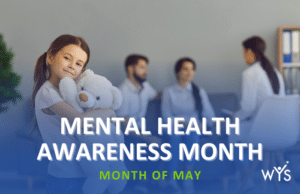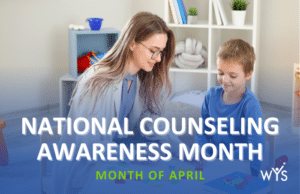October is not just about pumpkins and Halloween; it’s also a month dedicated to an equally important cause—Bullying Prevention Month. At Western Youth Services, we are committed to raising awareness about bullying prevention and its profound impact on mental health. In this blog post, we will explore the significance of bullying prevention, its connection to mental health, and how we empower youth through Youth & Mental Health First Aid, Trauma-Informed Care, and Evidence-Based Clinical Training.
Understanding the Importance of Bullying Prevention
Bullying is a serious issue that can have long-lasting consequences. Research has shown that bullying can lead to a myriad of mental health issues, such as depression, anxiety, and even suicidal thoughts. Moreover, it’s not only the victims who suffer but also the bullies themselves and bystanders who witness these acts.
Bullying Prevention Month serves as a reminder that we can make a difference by raising awareness, fostering empathy, and implementing proactive measures to prevent bullying.
Bullying Prevention and Mental Health
The link between bullying and mental health is undeniable. Bullying victims often experience a range of emotional and psychological challenges. They may develop low self-esteem, feel isolated, and struggle with trust issues. For some, the trauma of bullying can haunt them throughout their lives. Additionally, bullies themselves are more likely to exhibit aggressive behavior and experience mental health issues.
Empowering Youth through Education
At Western Youth Services, we believe in empowering youth to combat bullying and its associated mental health challenges. Our programs are designed to provide the knowledge and tools needed to make a difference. Here are a few key initiatives we’re proud to offer:
Youth & Mental Health First Aid: This program equips young individuals with the skills to recognize signs of mental health distress and provide initial support. By fostering a culture of empathy and understanding, we empower youth to be allies and advocates for their peers.
Trauma-Informed Care: Understanding the impact of trauma is crucial in addressing the root causes of bullying. Our trauma-informed care approach ensures that we provide support that is sensitive to the experiences of those affected by bullying.
Evidence-Based Clinical Training: Our professionals are trained in evidence-based methods for addressing mental health challenges stemming from bullying. This ensures that our services are effective and grounded in the latest research.
Taking Action
As Bullying Prevention Month unfolds, let’s take action to create safer, more empathetic communities. Here are some steps you can take:
Educate Yourself: Learn more about the signs of bullying and its impact on mental health. Knowledge is the first step toward prevention.
Promote Empathy: Encourage empathy and kindness in your schools, neighborhoods, and online communities. Small acts of kindness can make a big difference.
Speak Up: If you witness bullying, don’t be a bystander. Speak up and support the victim. Report the incident to the appropriate authorities.
Support Anti-Bullying Programs: Invest in and support organizations like Western Youth Services that are dedicated to bullying prevention and mental health support.
Bullying Prevention Month is a reminder that we all have a role to play in creating a safer and more compassionate world for our youth. By empowering them with knowledge, empathy, and support, we can make a lasting impact on their mental health and well-being. At Western Youth Services, we are committed to this mission year-round through our Youth & Mental Health First Aid, Trauma-Informed Care, and Evidence-Based Clinical Training. Together, we can prevent bullying and pave the way for a brighter, more inclusive future for our youth.
If your child or a young loved one is struggling with a mental health concern, we encourage you to reach out to a mental health professional or to contact an Access Coordinator at Western Youth Services by sending an email to gethelp@westernyouthservices.org.






